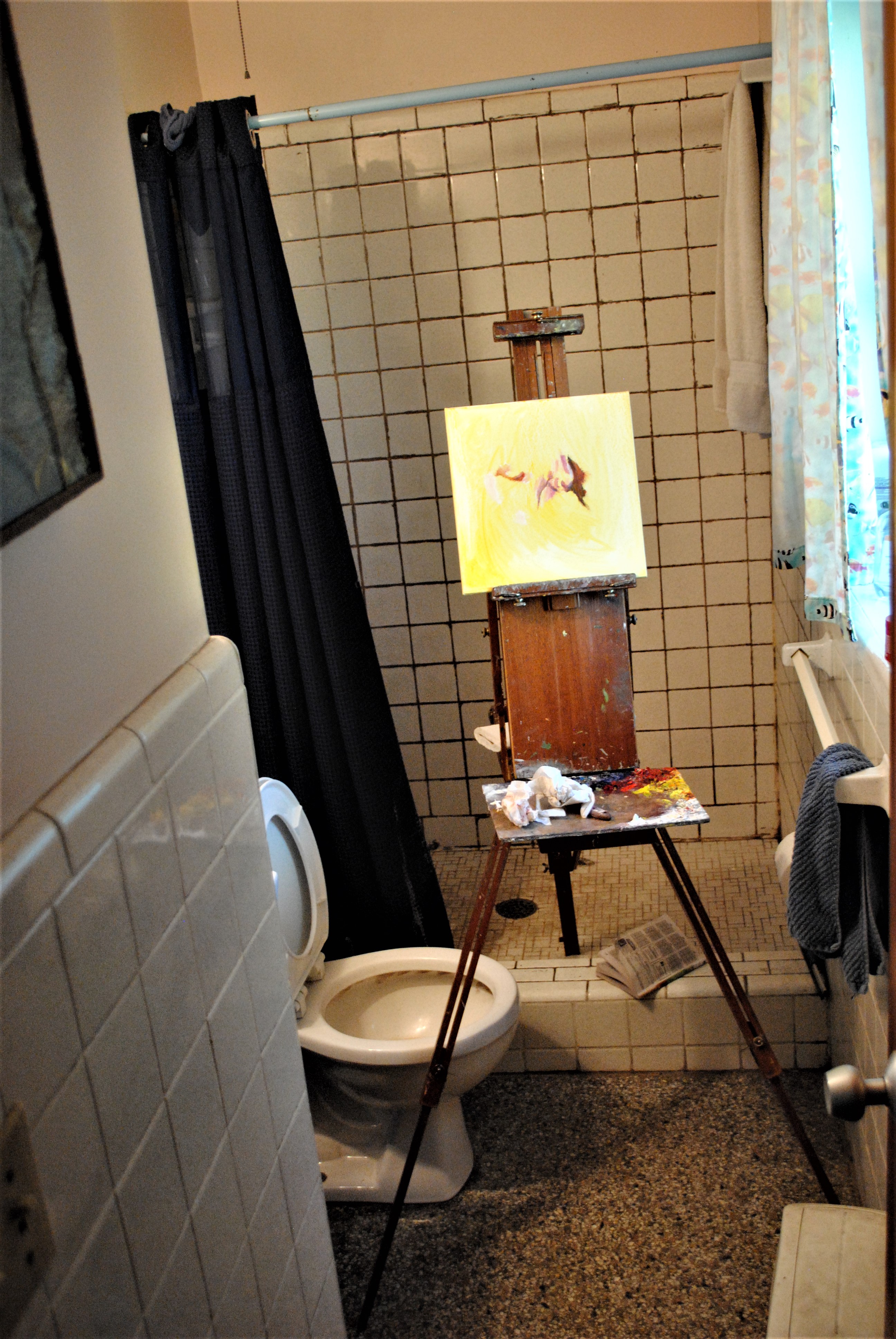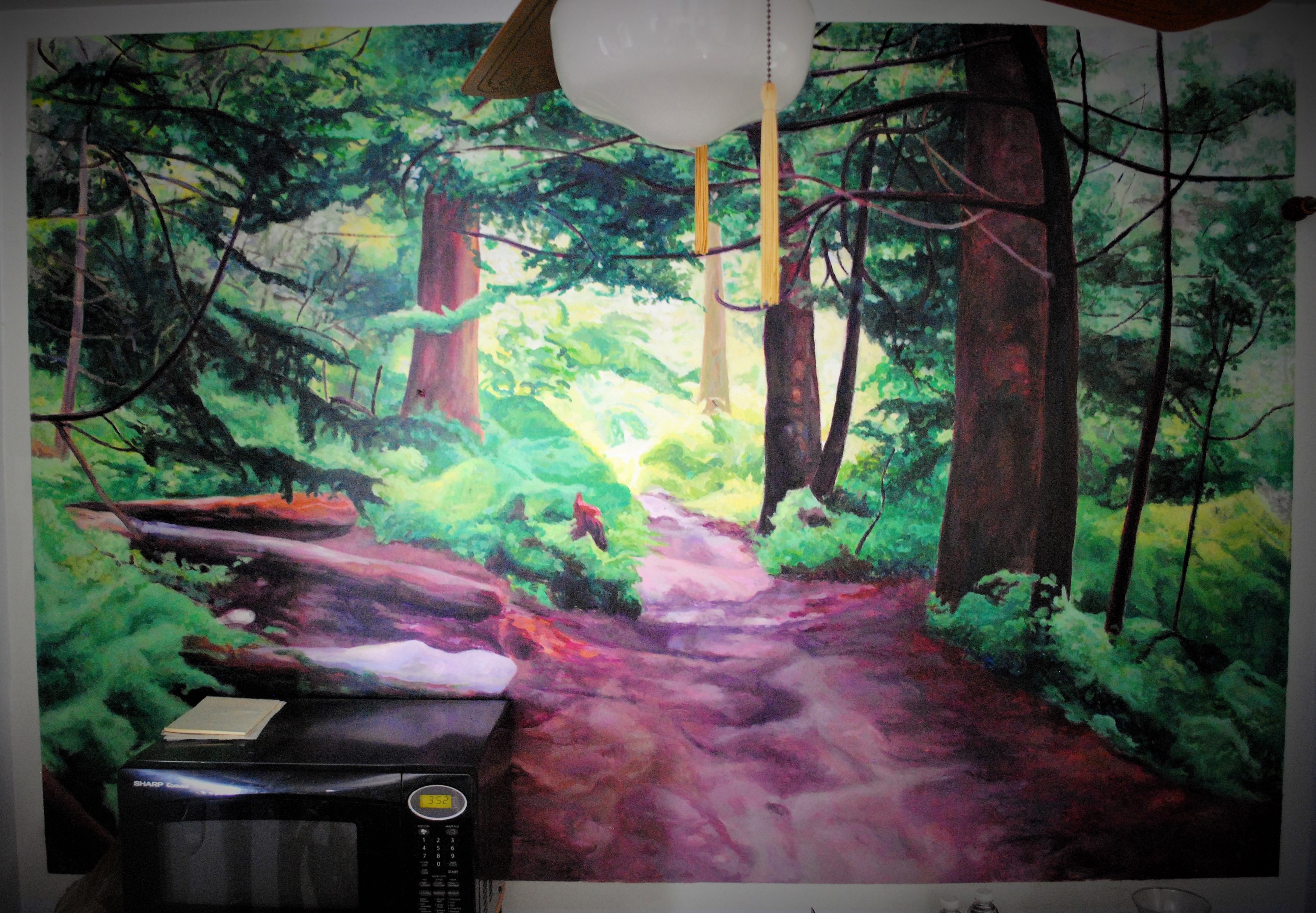Valentine’s morning dawned foggy, and the day stayed gray at midmorning when I went on a mission to get a haircut and buy some plants for my wife. I drove to Oviedo, but a barbershop near Home Depot had been replaced by a fitness center. I headed back toward Winter Park, but stopped at Lukas Nursery on the way. I found an odd looking plant with purple flowers in the shape of ragged trumpets. The tag said they’d lure butterflies and hummingbirds. Judy would love the color and the visitors they attracted. As I walked off in search of an African violet, an older woman approached and said she had to take all the purple flowers, but added that I could keep the one in my hand. Didn’t know what to say, so I went with a simple response: “Thank you.”
After I purchased the plants, I took Red Bug Road home so that I could search for a new barbershop. Ended up in Casselberry at a place that I’ve gone to off and on for a year. A well dressed woman wearing make-up and carrying a shopping bag stopped me as I approached the door. She said, “Mister, can you give me two dollars?” I pulled out my wallet and she added, “I need to buy a bus pass. That’s five dollars.” I took two bills out, and she said, “Three dollars?” I said, “Two,” handed her the cash and fled inside. I’d never encountered a dickering beggar before.
I sat down to wait. When I looked up, I was surprised to find an old acquaintance sitting in the barber chair in front of me. I hadn’t seen him in six months. Charlie said, “Dennis!” We chatted for a few minutes and caught up on a bit of gossip. “Strange coincidence,” I thought as he walked out the door.
Judy and I had a pleasant lunch, and the flowers and my haircut pleased her. She teased and called me her silver fox. I didn’t mind. We meditated, and I baked a peach upside down cake for a snack. We watched a “Doc Martin” episode before I cooked supper and went to work.
Class went well for the most part, but I stepped in several times to correct some drawings. Some of my students haven’t yet mastered (or committed to memory) some basic techniques in perspective and measuring proportions, and I grew impatient with the amateurish look of some of the work. “We’re nearly at midterm!” I muttered under my breath. I drilled a Drawing II student about some basic rules of line work, and as I walked away I realized I’d been too harsh. I came back, apologized, and told her that we all have mental habits that need a bit of work. I told Erin that I had to train myself as a boy to look back at my classroom desk each time I left to make sure that I hadn’t forgotten anything. She relaxed, and I decided to ease up on the class and let them work in peace.
I cleaned up the room after the students left and found a smart phone on the tray of Erin’s easel. “How odd,” I thought. “Forgetfulness must be communicable.” I decided to take it with me. Leaving it there would ensure its theft, and the lost and found at the security office was closed. I walked toward my car hoping to see Erin coming back from the parking lot, but instead ran into a slender young man sitting on a concrete ball. He looked up from his phone and asked whether the Lynx bus would come near where he waited. He added that he had to return to Disney World. I said, “I haven’t seen buses pull in here for a couple years, but there’s a bus shelter two hundred feet south of the main entrance on Econlockhatchee. He smiled, shook my hand, and said, “Thank you. I am from Pakistan.”
As I drove out of the lot I saw him trudging south. A Lynx bus appeared and turned onto campus. “What the hell?” I said. It didn’t seem to be heading to the shelter. I took a right and drove north, but as I went on I felt a growing sense of dismay that I might have given the young man the wrong advice. Would he be stranded there all night? I also reasoned that I was dead tired, needed to go home and see my wife, and that my mission in life wasn’t to save the world. Fog rolled in, and driving conditions got worse and worse. Rationalizations failed me two or three miles up the road, and I turned around.
I had no idea what I would do if I found him sitting at the bus shelter. I didn’t really want to drive for an hour down to Disney, and my gas gauge hovered below the half full mark. Judy would worry…
I cruised around campus, pulled up to the shelter, but didn’t see the young man. I assumed that the bus had swung around to where I had directed him to go, and that he was safely on his way. A large man in a bulky coat did slump on one of the shelter seats, and I felt an odd obligation to give him a lift. I resisted and drove home.
Judy waited up for me in her bedroom, and I explained why I’d been delayed. She gave me a warm smile and told me that she loved me. I felt most of my tension and fatigue drain away.
Valentine’s Day had twisted and turned in unexpected ways, but none of that mattered.




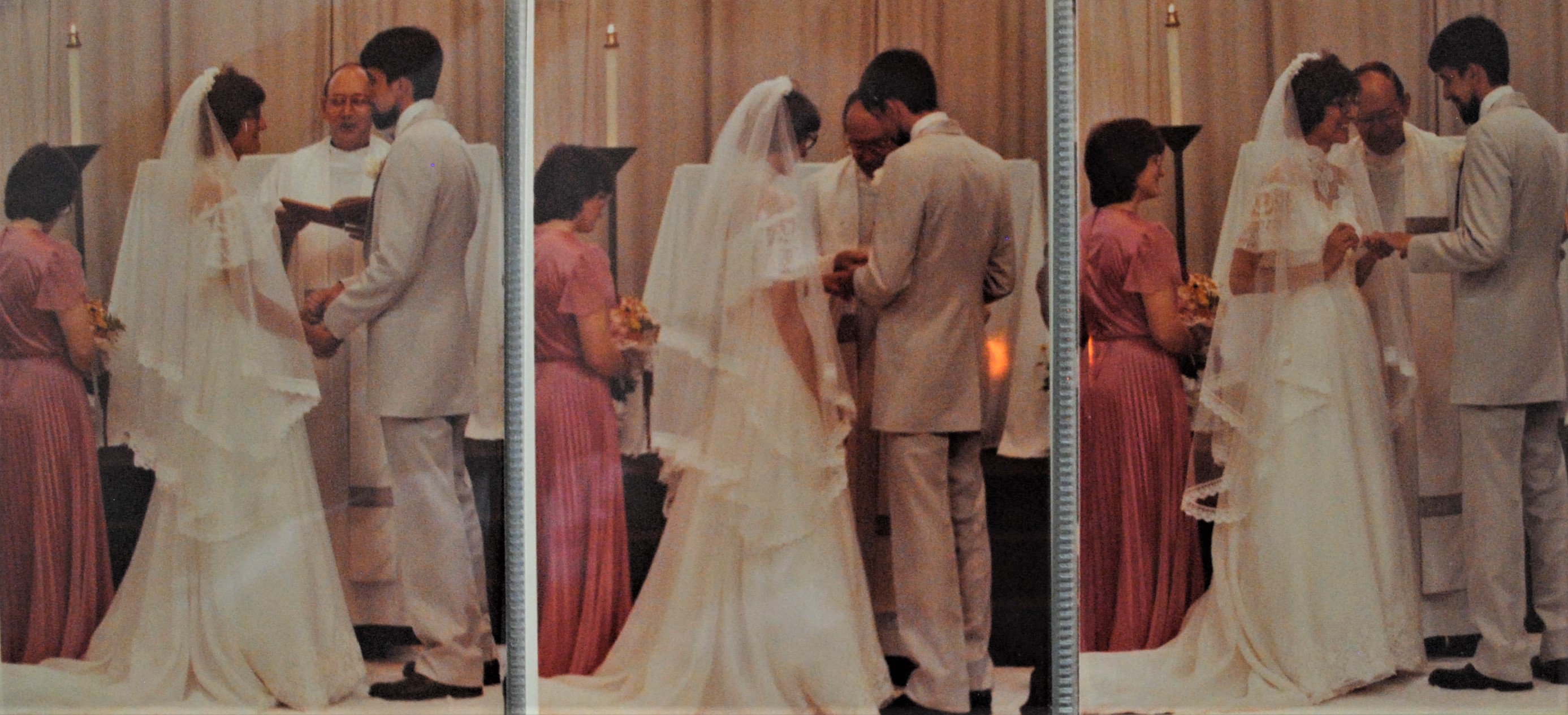 34 Years Ago
34 Years Ago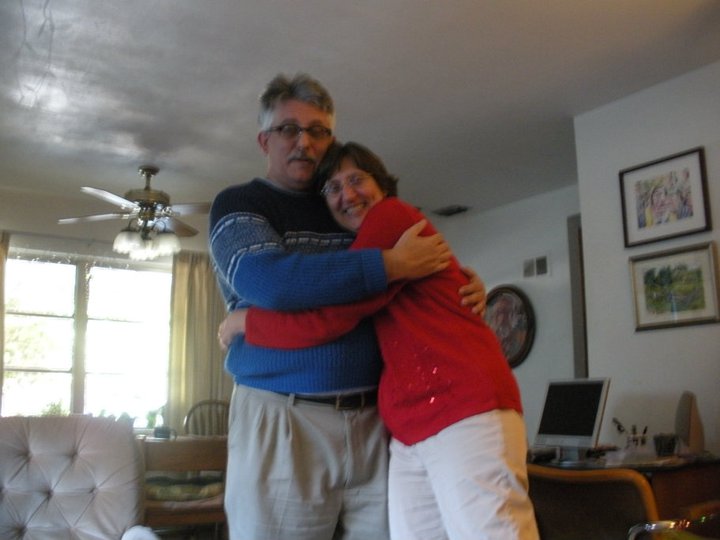
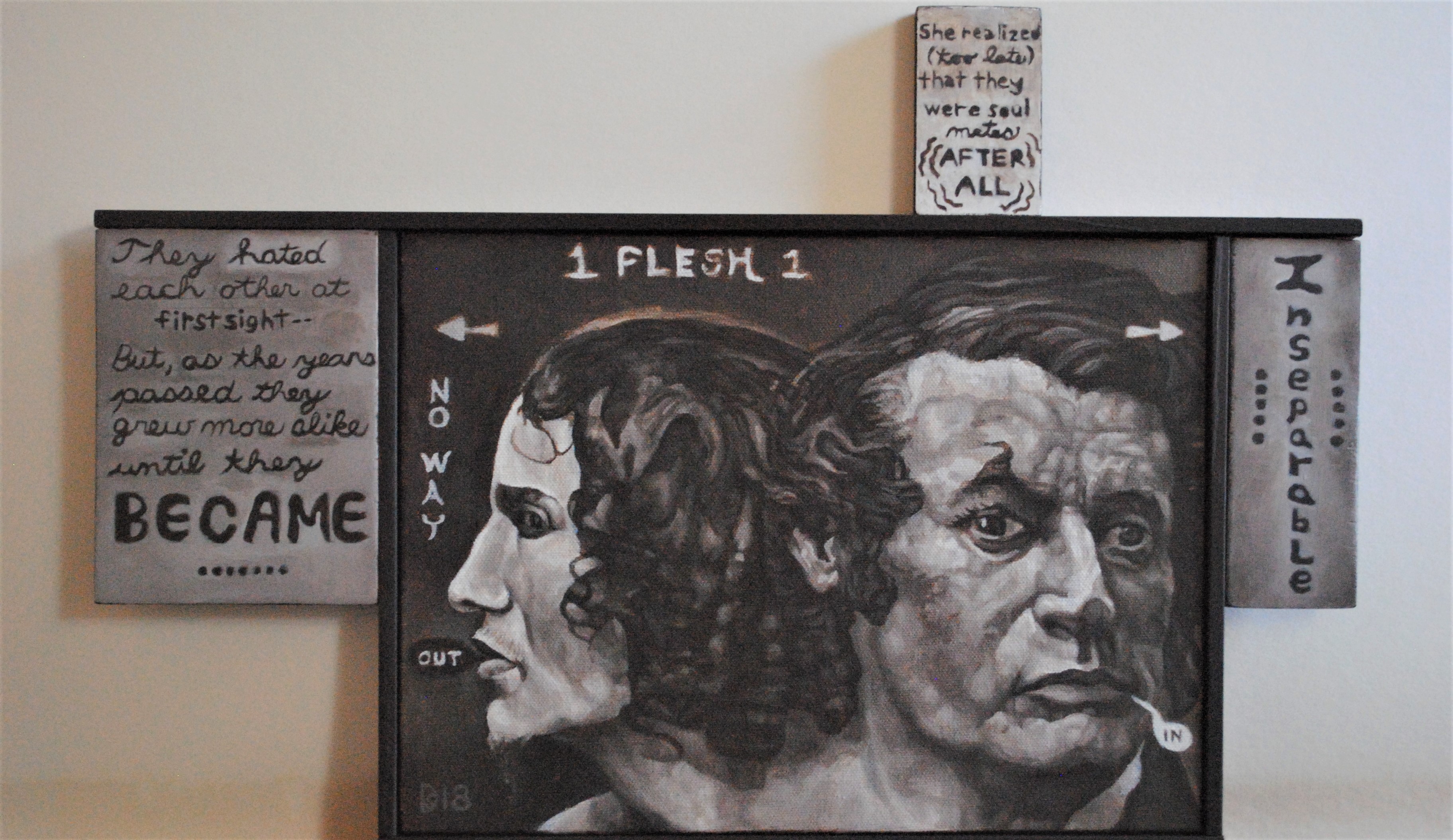
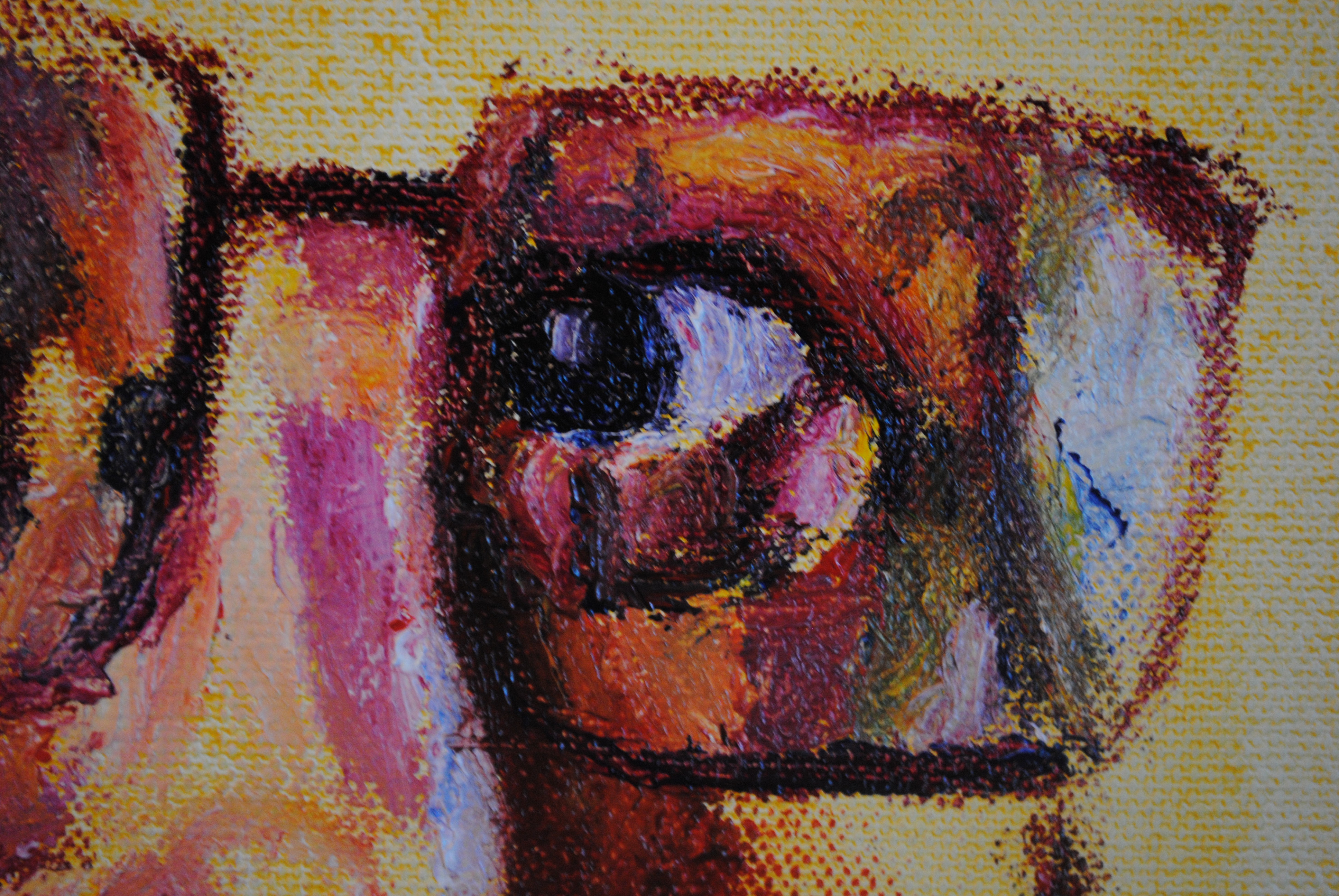
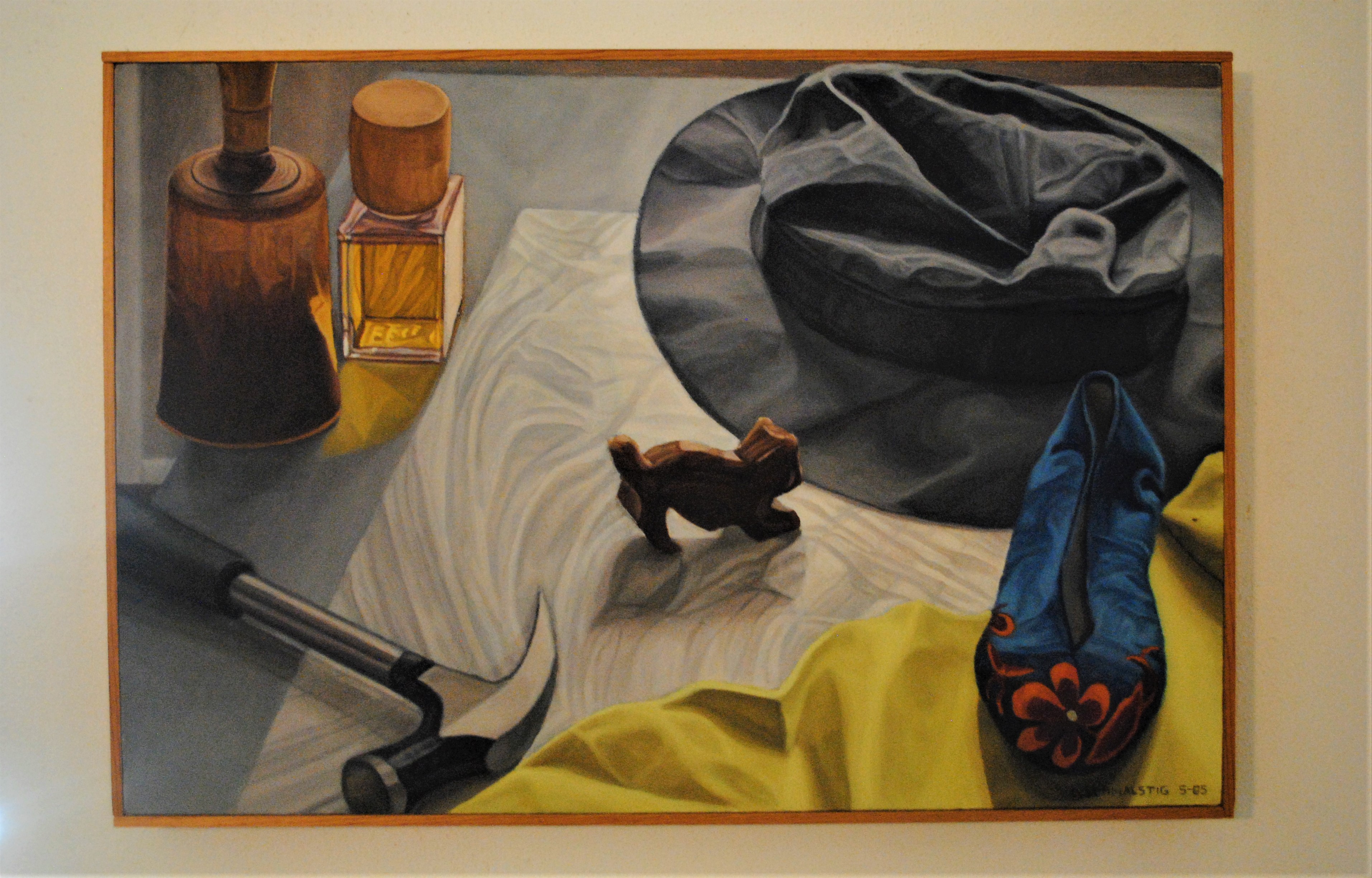 Cat and Hammer, Oil/Canvas, 1985
Cat and Hammer, Oil/Canvas, 1985